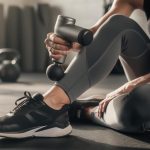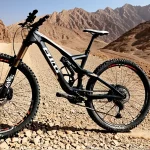Understanding the Rider-Horse Relationship
The bond between rider and horse is central to success in equestrian sports. A strong relationship is founded on mutual trust, forming the backbone of effective communication during riding sessions. Horses are perceptive creatures, keenly aware of their surroundings, including the actions and signals given by their rider. Therefore, establishing trust paves the way for seamless collaboration, translating to enhanced performance.
Key signals exchanged between rider and horse include body posture, leg pressure, and voice cues. These signals must be consistent, helping the rider convey intentions clearly. For instance, subtle shifts in weight can direct the horse to adjust its gait, while a gentle squeeze of the legs can cue movement forward. Understanding these signals enhances the rider’s ability to communicate effectively, fostering a stronger connection.
Also read : Ultimate guide to preventing muscle cramps for long-distance runners during races
Moreover, trust and communication significantly affect athletic performance. When a horse trusts its rider, it is more likely to perform at its peak potential, responding confidently to even the slightest command. This is crucial in competitive settings, where precise movements and coordination are pivotal for a winning performance. Nurturing this relationship through consistent practice and patience ultimately leads to success in equestrian sports.
Techniques for Building Trust
Building a strong relationship with your horse involves developing trust-building techniques. Establishing a foundation of trust requires patience, understanding, and consistent practice with various methods. These methods not only improve horse bonding but also foster a cooperative partnership between rider and horse.
Also read : Unlocking bmx success: harnessing video analysis to boost your racing tactics
Groundwork Strategies
Groundwork lays the groundwork (pun intended) for effective communication. Begin with exercises such as leading, backing up, and standing still. These rider exercises help enhance communication with your horse. Remember, consistency is key. By maintaining a consistent routine, horses learn to rely on predictable patterns, which deepens trust over time. Your body language plays a pivotal role—use it to guide, encourage, and reassure your horse during each session.
Establishing a Routine
Creating a structured training schedule is vital. Horses thrive on routine, and repetition helps reinforce learning and reduce anxiety. Balance is crucial: integrate both work and relaxation periods into the schedule to keep the horse mentally and physically stimulated while preventing burnout. Regular repetition of these exercises fosters a sense of security, allowing your horse to anticipate what comes next, ultimately strengthening the bond between you.
Employing these techniques will gradually build a robust trust framework, leading to a harmonious and rewarding relationship.
Training Methods for Enhanced Performance
Training techniques are crucial in improving equestrian performance, focusing not just on physical skills, but also on mental engagement.
Positive Reinforcement
Positive reinforcement is a valuable equestrian training tool. By implementing reward systems, trainers can encourage natural behaviour and strengthen the bond between horse and rider. This method involves providing incentives for desired actions, which enhances motivation. For instance, rewarding a horse with treats or praise for a successful jump supports the development of focus and encourages consistency in performance. Such practices align with the principles of natural behaviour and foster a stronger connection between horse and trainer.
Skill Development Exercises
Skill development is essential for advancing equestrian abilities. Implementing drills that target specific athletic skills can significantly enhance performance. For example, incorporating exercises that improve balance or agility ensures horses are well-rounded athletes. To maintain engagement, variety is key. Mixing different exercises prevents monotony and keeps horses interested and attentive. Regular evaluation of performance and progress is integral, allowing trainers to adjust exercises accordingly. By assessing areas of strength and those needing improvement, riders can create a tailored training routine that promotes continuous growth and skill enhancement.
The Role of Mental Preparation
In equestrian sports, the equestrian mindset is crucial for both horse and rider. Achieving a balanced state of mental focus can significantly enhance performance. It involves understanding and managing the mental preparation necessary for performing at your best. This preparation combines elements of performance psychology specifically tailored to the demands of both horse and rider.
One of the key elements is developing techniques for relaxation and anxiety reduction. Anxiety can impair judgement and reaction times, both of which are essential for successful riding. Techniques such as deep breathing, visualization, and mindfulness can help riders maintain focus and calmness under pressure. For horses, consistent routines and calming cues can be implemented to reduce anxiety and promote a sense of security.
Moreover, preparing for competition mentally and physically means combining psychological practices with physical routines. A strong focus on building mental resilience and instinctive decision-making complements physical training regimens. Establishing pre-competition rituals can enhance confidence and ensure both rider and horse are synchronised and ready for the demands of competition.
Ultimately, prioritising mental preparation leads to more cohesive and successful performances in equestrian events, highlighting the symbiotic relationship between skilled riding and a well-prepared mindset.
Nutrition and Health for Optimal Performance
Exploring horse nutrition can significantly enhance their performance health. Understanding equine nutrition is crucial, as it involves a precise balance of several essential nutrients tailored to athletic horses.
Understanding Equine Nutrition
Athletic horses require a specialized diet rich in proteins, carbohydrates, and fats to fuel their energy and recovery. Protein supports muscle growth and repair, while carbohydrates provide quick energy bursts needed during intense activities. Including the right fats offers a sustained energy release and aids in digestion. Balancing these components is key to ensuring optimal performance and health.
Moreover, dietary guidelines often highlight the inclusion of supplements like omega-3 fatty acids, vitamins, and minerals that can specifically target enhanced performance and faster recovery. Such supplements can fill nutritional gaps and help maintain peak fitness levels.
Health Monitoring Practices
For robust equine health, regular veterinary check-ups are vital. These assessments help in early detection of health issues and ensure the horse thrives. Another critical aspect is recognizing signs of stress or fatigue, such as changes in behavior or reduced appetite, which might indicate overexertion or nutritional deficiencies. Ensuring a stable, stress-free environment complements dietary efforts in maintaining the horse’s overall performance health.
Resources and Community Support
Receiving the right support and accessing quality resources are crucial in the equestrian world. Whether you are a beginner or a seasoned rider, you can benefit from the wealth of equestrian resources available both locally and online.
Expert Interviews
Speaking with experts provides invaluable insights into building effective partnerships with horses. Seasoned trainers often emphasize the importance of trust-building. They have shared how understanding a horse’s behavior and needs can significantly enhance the bond between an athlete and their horse. These insights stem from firsthand experiences and successful case studies where riders have achieved remarkable coherence with their equine partners. By sharing these experiences, the community fosters learning and growth among its members.
Workshops and Training Resources
Workshops play a vital role in a rider’s development. Participants should explore both local and online workshops, which offer diverse learning experiences. You might find sessions focusing on technical skills or communication with horses. Books and materials endorsed by professionals also provide guidance and deepen understanding. Building a supportive network through local equestrian clubs can further enrich your learning journey. These clubs offer opportunities to connect with other enthusiasts, exchange knowledge, and maybe even collaborate on exciting equestrian projects.










